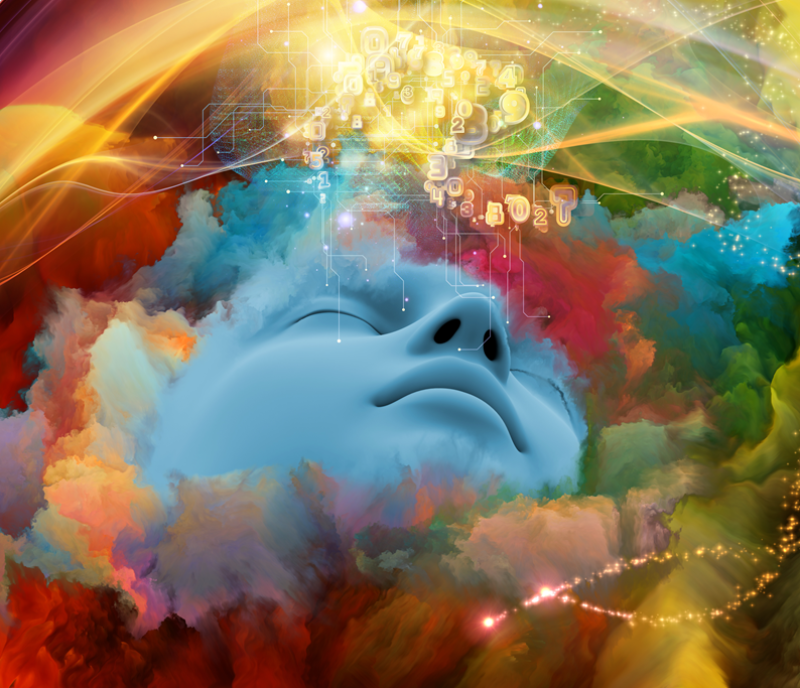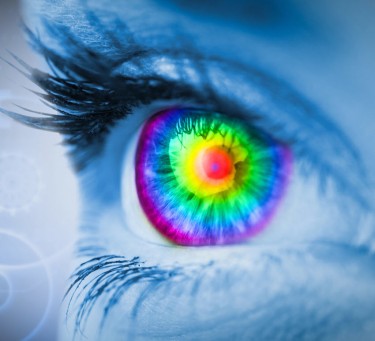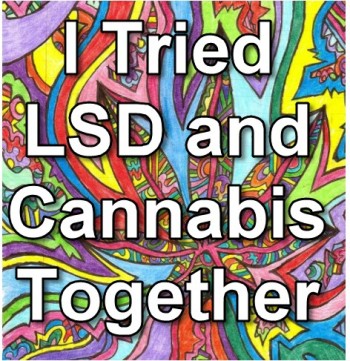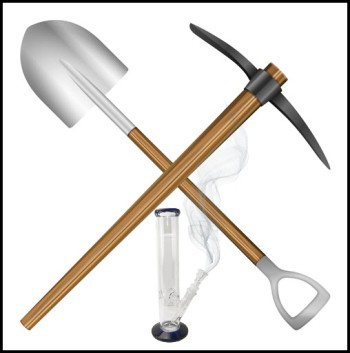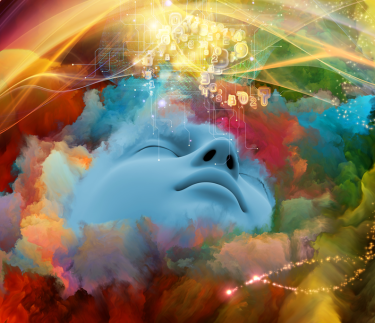
Dimethyltryptamine, or DMT, is a substance with hallucinogenic properties that may be found in a wide range of plants and animals. When taken in large enough quantities, DMT may produce a "high" and cause distortions in one's senses, making things appear that they aren't. Other names for it include elven spice, spirit molecule, businessman's special, and Dimitri.
For ages, people from many cultures have utilized DMT in rituals and religious ceremonies. It is one of the active components in South American psychedelic beverage ayahuasca. Laboratories are also capable of producing synthetic DMT.
Recreational users go for DMT because it produces a strong, brief "trip," sometimes referred to as a "breakthrough in DMT." Although some studies point to possible advantages for both physical and mental health, the drug's adverse effects may offset these advantages.
Some have described tripping on DMT "like dying", but in a positive way of getting to see the universe and afterlife. Many people feel a deep euphoric feelling that can be humbling, like comparing yourself to a piece of sand in the universe. In a religious sense, those say you become one with the universe or the "god in you".
DMT Versus LSD (ACID)
Both DMT and LSD, sometimes known as acid, are potent "psychedelic" substances that can change your perception. Their molecular makeup is identical to that of serotonin, a neurotransmitter found in your brain.
Differences between DMT and acid include:
Source. While LSD is manmade and derived from a material in a fungus that grows on rye grains, DMT is found in both plants and mammals.
Length of time. Whereas an acid trip can last up to 12 hours, DMT is a powerful, short experience lasting 15 to 60 minutes.
How Does DMT Trip Make You Feel?
DMT affects individuals differently, but common effects include:
- Visual or auditory hallucinations
- Out-of-body experiences
- Mood changes
- Heightened sensitivity to physical sensations such as pain, tingling, and warmth
- Feelings of euphoria or intense happiness
- Spiritual and emotional experiences
- Distorted body image
- The ability to unlock hidden memories
The effects of DMT depend on several factors, including:
- Your size, weight, and overall health
- Whether it’s your first time using it or not
- Whether you have taken other substances simultaneously
- The dosage
- The drug's potency, which can vary between sources
- Your environment
- Your mood at the time of consumption
Set and Setting with DMT
When using DMT, your physical surroundings and mental state are referred to as your "set and setting." These factors have a big impact on your experience, both good and bad.
The set is the state of mind you are in before using the drug; it includes your feelings, expectations, past psychedelic experiences, and any tension or worries you may be experiencing.
Setting includes the people and things in your immediate surroundings. You may be in a familiar setting with individuals you can trust, or you may be in a foreign area alone. You will be affected differently by a calm, peaceful setting than by a busy, boisterous one.
Can DMT Cause a Bad Trip?
It is possible to have a negative experience, or "bad trip," when taking DMT. Instead of euphoria, you might feel:
- Intense anxiety
- Frightened by your hallucinations
- Very confused
- Paranoid
Being in a positive set and setting can help reduce the risk of a bad trip.
Due to limited research, the long-term effects of DMT are not well understood. Flashbacks, which can be unpleasant and occur days, weeks, or even months after taking DMT, are a commonly reported side effect.
While there are no reports of toxicity from long-term DMT use, there are concerns about its impact on heart health, as it can raise blood pressure.
Potential Therapeutic Uses of DMT
According to recent studies, DMT may have a variety of medicinal uses. Studies suggest that DMT may be helpful in the treatment of mental health issues, however, they are still in their early phases. Here are a few possible medicinal applications:
1. Treatment for Sadness and Anxiety: According to preliminary studies, DMT can affect mood in a quick and significant way, which may be able to provide treatment for those with sadness and anxiety. Because DMT experiences are strong and brief, they may provide immediate therapeutic effects without requiring lengthy therapy sessions.
2. Support Psychotherapy: People may find it easier to process trauma and unearth suppressed memories if DMT can elicit strong emotional and spiritual experiences. DMT may help make significant progress in psychotherapy under carefully monitored conditions, enabling patients to address and resolve ingrained psychological problems.
3. Potential for Addiction Treatment:
Some studies suggest that DMT and other psychedelics might be useful in treating substance abuse disorders. By providing profound insights and altering perception, DMT could help individuals break free from addictive behaviors and develop healthier coping mechanisms.
4. Neurogenesis and Brain Health: Some research indicates that DMT may encourage neurogenesis, or the development of new neurons, which may have an impact on cognitive performance and overall brain health. Conditions like Alzheimer's disease and other neurodegenerative illnesses may benefit especially from this feature.
Even while these prospective advantages seem encouraging, it's crucial to remember that DMT research is still in its early stages. To completely comprehend its therapeutic potential and create safe, efficient treatment procedures, more thorough, controlled research is required. To reduce hazards and optimize benefits, the DMT experience is intense, thus it must be administered in a controlled setting, ideally under the guidance of qualified specialists.
Bottom Line
DMT, or dimethyltryptamine, is a powerful hallucinogenic compound found in various plants and animals and can be synthesized in laboratories. Known by names like elven spice, spirit molecule, businessman's special, and Dimitri, DMT has been used for centuries in rituals and religious ceremonies, particularly in South American cultures through the ayahuasca brew. Recreational users seek DMT for its intense, short-lived "trip," which can include profound sensory distortions and out-of-body experiences. The effects of DMT vary greatly depending on factors like dosage, individual health, environment, and mental state. A positive "set and setting" can enhance the experience and reduce the risk of a "bad trip," characterized by intense anxiety, confusion, and paranoia. Although the long-term effects of DMT are not well understood due to limited research, some studies suggest potential therapeutic benefits, such as treatment for depression, anxiety, and substance abuse disorders. However, these potential benefits come with risks, including the possibility of flashbacks and concerns about heart health due to increased blood pressure. In summary, while DMT offers intriguing possibilities for both recreational and therapeutic use, it should be approached with caution and ideally under professional supervision to mitigate risks and maximize potential benefits.
